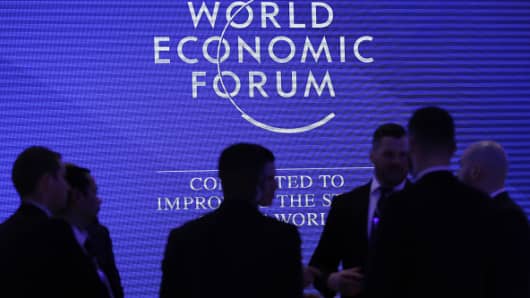If there was a call to action launched into the zeitgeist by the World Economic Forum in Davos, Switzerland, last year, it was the purpose-before-profit movement, the notion that companies need to deliver a positive contribution to society to ensure their own long-term growth. This idea has garnered a lot of ink and air time in the past year as CEOs have pledged to do more for stakeholders beyond those holding their shares.
On Wednesday, at this year's World Economic Forum, I announced the news that global business leaders — present and future — are doing more than paying lip service to this purpose-first approach to capitalism. This is according to the Young Presidents Organization' recent survey of its membership — 27,000 business leaders in 130 countries — in which CEOs emphatically affirm this massive shift in mindset regarding the role of business leadership in today's society. The study was conducted Dec. 23, 2018 through Jan. 4, 2019 with more than 2,200 CEOs responding.
YPO's 2019 Global Leadership Study found that today's business leaders now include social impact as part of their purpose and are more inclined to pursue that positive impact through their business than by being involved in politics. In fact, government is seen as more a hindrance than a help in solving social problems, with government regulation (51%) cited as the biggest obstacle to greater impact, followed distantly by taxation. Regionally, political unrest is perceived as a big hurdle in Africa (32%) and MENA (39%).
These results matter because of the stature and ambition of the survey respondents. YPO is comprised of a group of high-potential top executives that have achieved an extraordinary level of business and financial success at a young age (by 45 years old) to even be considered for membership. They represent the immediate future of global business and USD 9 trillion in annual revenues, not to mention 22 million jobs worldwide.
Ninety-three percent of those surveyed say that business should have a positive impact on society beyond pursuing profits and wealth, a departure for most of these CEOs from previously held views. In fact, three of four respondents acknowledge that their perspective on this priority and their own role in advancing it (serving business and society) has changed over the past five years.
When asked who or what has influenced their views, leading responses are fairly balanced: employees (43%), colleagues (40%) and children (37%) — not the media or outside seminars/education programs. Perhaps even more startling, these chief executives now prioritize a broader set of stakeholders beyond shareholders, who now rank fourth most important after employees, customers and their family.
The areas of concern that are top of mind for these ambitious business leaders are big-picture global issues: climate change (37%), lack of quality education (37%), peace, justice and global institutions (30%) and availability of work opportunities and economic growth (28%).
CEOs are not simply claiming to address these and other issues, they are taking action. And they are taking action through what they know best and can control — their own businesses and bank accounts. They are "ensuring my business makes a positive difference" (57%), "creating jobs and prosperity for people" (49%), teaching/mentoring others (43%), investing in business growth/expansion (40%) and "engaging in personal philanthropy" (40%).









